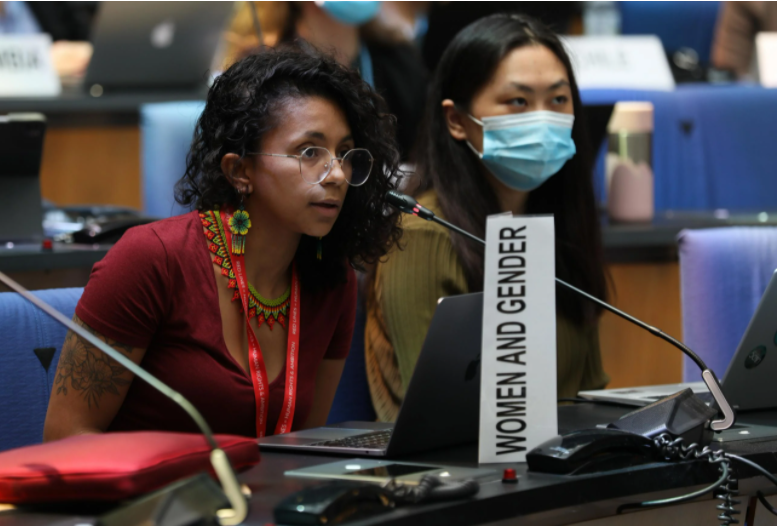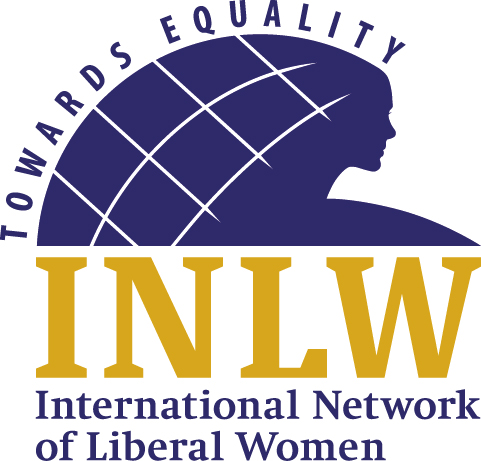The Bonn Climate Conference (SB56) 6-16 June 2022 is to express purpose of beginning to take stock of where the world stands when it comes to implementing the Paris Climate Change Agreement.
We are in the midst of a climate emergency, which is causing human rights violations, destroying ecosystems and biodiversity, and drastically increasing inequality across the globe.
The Global Stocktake (GST) discuss about the outcomes of the UNFCCC Climate Change Conference in Glasgow and the IPCC reports on impacts input to the technical assessment. But also about the energy, agriculture, land, ecosystems and (ground) water scarcity.

Recommendations for SB56
After extensive deliberations in the past two weeks, Global Stocktake and parties agreed on:
Human Rights
Ensure and promote the human rights of millions of people around the world including the rights of Indigenous Peoples who are threatened by loss of food and water sources, displacement, and aggravated conflict over scarce natural resources associated with the climate crisis.

Food Security (Agriculture)
Recognizing the fundamental priority of safeguarding food security and ending hunger, and the particular vulnerabilities of food production systems to the adverse impacts of climate change by including agroecology and its value for food security, the climate, and biodiversity in the implementation and policies as highlighted by the IPCC Special Report on Climate Change and Land. Food security is already and will increasingly be affected by the climate crisis.
Ecosystem Integrity
Invest in gender-transformative climate action and in biodiversity conservation measures and the importance of ensuring the integrity of all ecosystems including oceans, divest from fossil fuels and ensure that a healthy and sustainable environment is to the full enjoyment of human rights, including the rights to life, health, food, and water.
Just Transition and Decent Work
Promoting decent work by ratifying, funding, and enforcing ILO conventions on collective bargaining and freedom of association as well as on domestic workers and on the
elimination of violence and harassment. A just transition is central to ensuring socially just and equitable climate action as it is fundamentally about realizing the transition from a fossil-fueled economy to a fossil-free one in a fair and inclusive way for workers and in a manner that creates decent work conditions.

Ruth attended the SB56 KCI-6 meetings and workshops (KCI: Katowice Committee of Experts on the Effects of the Implementation of Response Measures) and the Global Stocktake SB56 meetings at the June Climate Conference in Bonn. They spoke about several urgent topics that could affect the rest of the world.
The IPCC reports have reaffirmed the urgency, with the devastating impacts on human life and biodiversity (including food security and land water scarcity) of exceeding 1.5°C, and the serious inadequacy of current mitigation pathways. In addition, the tragic Russian invasion of Ukraine, financed by fossil fuels, has highlighted the greater risks of our continued dependence on oil and gas.
This year’s UN annual climate conference in Bonn aims to lay the groundwork for success at COP27 (November 6-18, 2022) in Sharm el-Sheikh, Egypt.
At COP27 in Egypt 6-18 November 2022, GST will primarily focus on implementation, and nations are expected to show how they will, through legislation, policies and programs, and throughout all jurisdictions and sectors, begin putting the Paris Agreement into practice in their home countries.
I, Ruth Richardson (INLW) will be working together with Women and Gender Constituency to ensure decisions reached do not come at the expense of ambition, climate change and of human rights, including the rights of Indigenous Peoples, but instead help enable meaningful action at COP27 in Sharm El-Sheik, Egypt, later this year.
Information about Women and Gender Constituency / Wedo

The Women and Gender Constituency (WGC) is one of the nine stakeholder groups of the United Nations Framework Convention on Climate Change (UNFCCC). Established in 2009 and granted full constituency status in 2011, the WGC consists of 33 women’s and environmental civil society organizations, who are working together to ensure that women’s voices are heard and their rights prioritized in the fight against
climate change. The Women and Gender Constituency, consisting of a broad variety of national and regional network organizations, represents hundreds and thousands of people across the globe, with advocates from over 90 countries.

 Visit our Facebook page
Visit our Facebook page